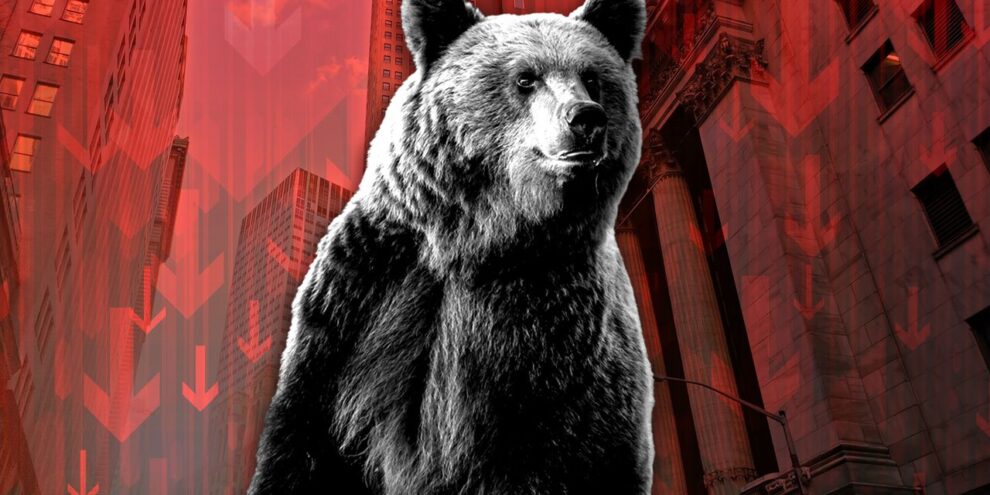
Investors are increasingly worried about the risk of a U.S. recession, following last month’s banking crisis and as more data points to slowing economic growth.
Still, the stock market has rallied so far this year, with the Dow Jones Industrial Average DJIA, -0.74% up 2.2% and the S&P 500 SPX, -0.65% up 7.7%. The Nasdaq Composite COMP, -0.93%, which has led the rally, gained 15.6% year-to-date, according to FactSet data.
However, a group of Wall Street veterans, who all used to worked at Merrill Lynch and has a combined experience of more than 230 years, were mostly bearish about the stock market in the coming months, as they shared their views on investing at a roundtable discussion hosted Thursday by economist David Rosenberg, president at Rosenberg Research.
Richard Bernstein, chief executive at Richard Bernstein Advisors, said the rally in risk assets so far this year is “not a fundamental one.”
One piece of evidence is the surge of cryptocurrencies, with bitcoin BTCUSD, -0.01% up more than 80% so far this year, according to Bernstein. “We view cryptocurrencies as being the ultimate speculative market. When they were up 60% or 80% year to date, it’s hard to make the argument that what we’re seeing is a fundamental rally,” Bernstein said.
The stock market rally so far this year is led by growth stocks instead of value stocks. It implies that the bounce may be more of a result of growth stocks getting over sold last year, according to Bob Farrell, who is now 90 and worked 45 years at Merrill Lynch including a quarter-century as its high-profile chief stock-market analyst. As a result, the rally is likely to be temporary, Farrell said.
“We haven’t had the markets discounting an economy going into a recession,” according to Farrell. Even many investors on the bearish side feel that there will be one leg down to buy, and “I think good bottoms aren’t made that way,” Farrell said. “Good bottoms are made when you are afraid to buy, when they’re pretty, pretty bad.”
“I think the likelihood is that we are still going to make new lows,” according to Farrell. “My approach is to continue to hold cash and not make any big moves here, and be defensively investing,” Farrell said in the discussion.
Gary Shilling, president of A. Gary Shilling & Co., echoed the point. “We’ve been very definitely in a risk-off investment stance since May last year,” Shilling said. His firm has been shorting crypto and long Treasury debt, according to Shilling.
Shilling said he thinks the stock market is only halfway to the bottom. “I’ve been forecasting somewhere around a 40% peak-to-trough decline. We are not quite halfway down there,” said Shiling. That means that S&P 500 index could reach a low of 2,877 from its peak at 4,796 on January 3, 2022.
That’s because a recession is likely to be near, Shilling said. “I think the first part of the weakness [in economy] was due to the Federal Reserve raising interest rates. The second part, in my view, is dominated by weakness in profits and sales,” said Shilling.
In fact, the U.S. is already in a profits recession, with earnings growth being negative, according to Bernstein. The deeper the profits recession, the more likely a economic recession will come, noted Bernstein.
Still, while many investors are concerned about the failure of several regional banks, the recession is unlikely to come from the financial sector, according to Chuck Clough, chairman and chief executive officer at Clough Capital Partners L.P. Instead, it’s more possible for the recession to come from the demand side, Clough said.
A recession is likely to start as consumers run out of their Covid savings, Clough said. Still, the recession might be shallow, as the Fed may use its balance sheet to keep things from unwinding, according to Clough.
Clough said he thinks the S&P 500 would be flat “for a long period of time.” “I don’t buy the [narrative that] the S&P 500 [would fall to] 3,300, I don’t think there’s enough rebalancing the economy to get us down that far,” Clough said. “But I think the bulls will be equally disappointed. And I think there’ll be a long but shallow recession.”
When asked how they would allocate a portfolio consisting of stocks, bonds and cash, Bernstein said he would hold 50% in stocks, 45% in bonds and 5% in cash alternatives, while Farrell said he would hold “a lot of cash” and 30% in equity. Clough said he’d have a 50-50 portfolio for stocks and bonds. Shilling said his firm is long bonds and shorting stocks.






